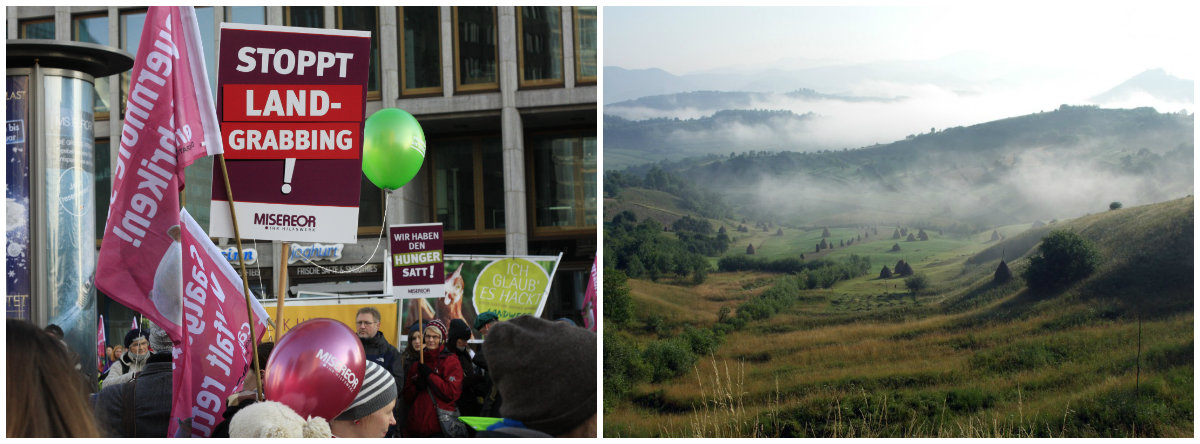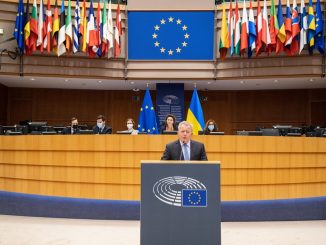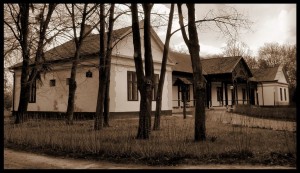A report provisionally adopted on 27th April by the European Parliament make a specific call on the EU Commission to fight land concentration.
The report (downloads PDF) “calls on the Commission to maintain, during the development of the draft CAP for the period after 2020, measures to combat the concentration of agricultural land and to develop additional measures in support of micro, small and medium-sized enterprises.”
This quite strong and precise language appears in the report “On the State of Play of Farmland Concentration in the EU: How to Facilitate the Access to Land for Farmers.”
La Via Campesina described it as “both a victory and a point of departure for small-scale farmers organisations.” Part of the process of building up to this report was the January 2015 publication of – Land grabbing – a wake-up call for Europe and an imminent threat to family farming – an EESC (European Economic and Social Committee) opinion. More recently, at a conference in the EESC ARC2020’s Benny Haerlin presented Land Rush – the Sellout of Europe’s Farmland which made the case for retaining small to medium sized farmers on the land, while exposing the extent of land concentration, or land grabbing, in the EU.
The newly adopted report points out that Europe compares to “Brazil, Colombia and the Philippines” for land concentration, with “only 3,1 % of farms” controlling “52,2 % of farmland in Europe”.
This trend “runs counter to the European sustainable, multifunctional agricultural model, in which family farms are an important feature” the report states.
The report also makes the case for land to be treated differently to other things which are also bought and sold, in human rights, ecosystem services and other terms. Interestingly, it refers back to a 1967 German Constitutional Court judgement which found “that trade in rural land need not be as free as trade in any other capital, because land is unrenewable and indispensable, and an equitable legal and social order requires the public interest in land to be taken into account far more than in the case of any other property.”
Emphasising the importance of land access for young, including non-farming families, the document warms of “the sale of land to non-agricultural investors and holding companies” which it describes as “an urgent problem throughout the Union.”
It adds “the concentration of farmland has an adverse effect on the development of rural communities and the socio-economic viability of rural areas”.
More positively, increased payments on first hectares in the reformed CAP of 2013 is mentioned as limiting factor on the forces of land concentration. This approach, the report “believes” should be given “added weight”
A number of calls are made for better observation and reporting, improved data sharing, a task force, and for better use of available policies (including regarding young farmer prioritisation) by Member States.
It also “suggests that direct payments would offer better value for money if they were payable based on the environmental and socio-economic public goods a farm holding delivers, rather than solely on the land area it cover.”
The stronger language of “calling for” is used again when the report “calls for farmland to be given special protection… to regulate the sale, use and lease of agricultural land in order to ensure food security in line with the EU Treaties and the case law of the European Court of Justice on land tenure and access to land, and also with regard to the four fundamental European freedoms and to the public interest.”
Part 3: Interactive Map of Land Grabbing in Romania Launched






2 Trackbacks / Pingbacks
Comments are closed.